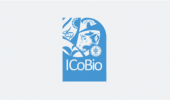Indonesian Bioresources for Health
- Last modified at 9 January 2017

Indonesian Bioresources for Health
Credit: 3 (2-1)
Description
This course will focus on the fundamental role of Indonesian bioresources in certain health-related circumstances. This course will elaborate the contribution of plant, animal, fungi as well as microbes in determining the health status of either host-organisms or environment. Students will be introduced to the uniqueness and markedly diverse Indonesian bioresources such as medicinal plants (jamu plants), traditional foods (tempeh, sweet soy sauce, bekasam, belacan), as well as natural products derived from certain organisms (bee products) and microorganisms (marine microbes, gratropods and molluscs), important for the sustainability of tropical environment. This course will also emphasize the principles of employing the properties of Indonesian bioresources for health purposes, including sustainable production of quinine, utilization of bioindicator for environmental health and management of spoilage harvest fungi. For better understanding upon the course, laboratory works and field trip (visiting Kampung Jamu, Tempeh factory, Eijkman Institute) will be conducted as integral part of the course.
Learning Outcomes
Upon completion, students should be able to identify the uniqueness of Indonesian bioresources important for health both in human and environment. In addition, student will be able to describe the fundamental role of Indonesian bioresources in health purposes.
Topic
- Indonesian Medicinal Plant
- Probiotic I
- Probiotic II
- Microbes and algae-derived natural products
- Molluscs and Gastropods-derived natural products
- Bee products : Honey, propolis, bee bread
- Bioindicator for environmental health I
- Bioindicator for environmental health II
- Indonesian Traditional food: Tempeh and sweet soy sauce
- Indonesian Traditional food: rusip, bekasam, peda, belacan
- Spoilage harvest fungi
- Sustainable production of quinine
- Field Works I
- Field Works II













































.png)








Login
LoginSitemap
map